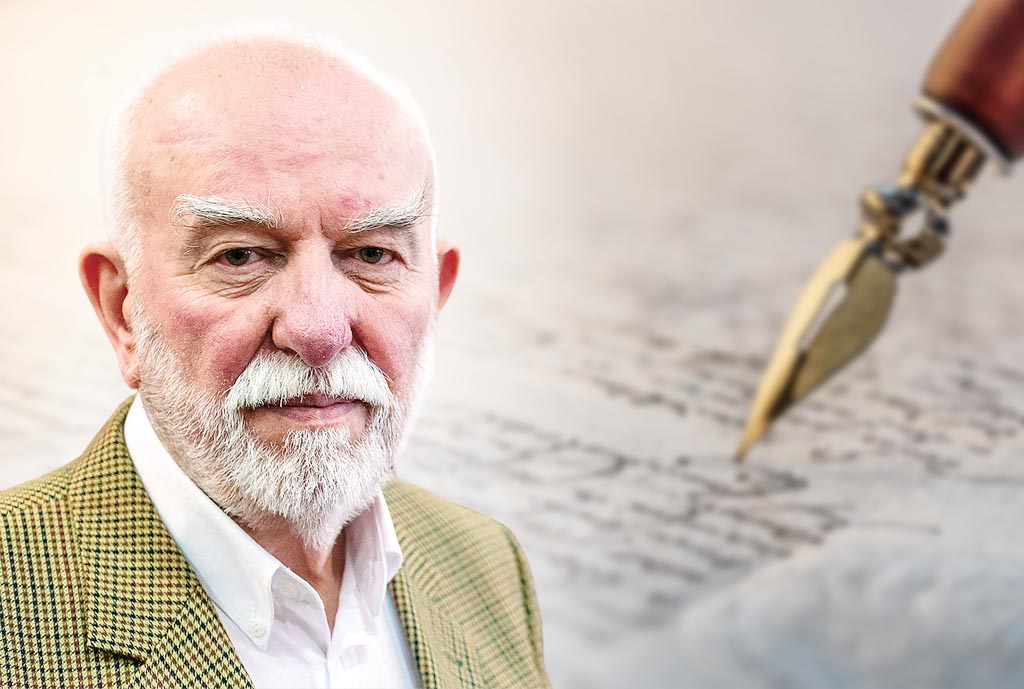By: Franci Kindlhofer
Years ago, I had the opportunity to see and hear Sašo Hribar at a public event. The highlight of his performance was that he talked about the commission for extrajudicial killings, which at the time was headed by Dr Jože Pučnik, and its senseless counting of bones.
I was unpleasantly surprised not only by his statement, but even more by the reaction of those present, who were otherwise busy with their own dinner and drinks. In fact, apart from a few isolated bursts of laughter, there was no reaction to be detected. I expected that the organiser would at least take the microphone from him and dismiss him, but nothing like that. I thought I should get up from my chair and remind Hribar about his rudeness. But when I heard around me people enjoying a good roast and sipping old wine, I noticed how lonely I was. But I was also aware that a few years after the removal of the dictatorship, I cannot expect all compatriots to exchange their pattern of thinking so quickly, which was formed in our brains during the long years of the dictatorship. Everything takes its time. I also thought about Hribar, the boy is still young, and every artist goes through the years with more and more experience and knowledge, there is no way he will not be able to separate the truth from lies and deception. He will find out what is appropriate and what is not. With age comes respect for death. In any case, for once I put Hribar on the side-lines as an artist I would be interested in.
With his provocative statement a few days ago, I remembered him again after many years. Same dilemma again; is it worth even responding to this severe provocation, or should I wave my hand, let the fool have fun? Of course, the question arises, is this really the statement of just some fool, or a well-thought-out provocation? Maybe he is even part of the ensemble of the current government, which orchestrately attacks everything that does not sound sufficiently socialist, Marxist, Yugoslav, Balkan… Too much coincides with joint, coordinated events in the government. Dr Premk fantasises about banning criticism of the bloody revolution and has even prepared a draft of the law on hate speech for the government, the interior minister accepts violators of the law, the minister of culture appears at the anniversary of the founding of the KPS, and now someone from the media has to ennoble these activities, which have a common rebellion against Museum of Independence of Slovenia. Since Sašo Hribar, in his outburst of hostility, summarised all the arguments that we otherwise hear from the opponents of the Museum of Independence, it is absolutely necessary to answer individual claims with arguments. Not because of Hribar, he is certainly aware of his lies, but because of those to whom these well-thought-out lies are intended.
I do not think it is necessary to point out that the entire statement is not at the level of a person who should deal with culture. Hribar uses the language of agitprop from the reddest of times. For Hribar, those who forged the future of the new democratic Slovenia in the CD and never knew if they would be able to leave the CD as free citizens are the ones who divide the nation. As if this did not happen in 1941 when the rebellion was declared a communist domain, or at the latest with the Dolomite Declaration on March 1st, 1943. According to him, these people from the CD want to erect their own monument with the Museum of Independence, with which they would like to take pictures. Why only CD people? Was Slovenian independence not something epochal for Slovenian men and women, something that ripened in the nation for centuries and, when this grain ripened, we reaped it. The Museum of Independence should serve as a granary, where we will carefully store this grain, as a precious seed for the future, so that it is not devoured by flocks of sparrows, among which are such cocks as Sašo Hribar and other birds.
Sašo Hribar plays the general after the battle. For him, this, fortunately short war, is worthless because it did not end in the style of a communist revolution, with thousands of dead. But when the war started, none of us knew how it would end. This short war test showed the great determination of the patriots to shed their blood for free Slovenia if there was no other way. Sašo Hribar also does not understand that this war was part not only of the independence process, but also of the liberation process. The Slovenians were supposed to complete what was left unfinished in 1945. Namely, to experience political liberation, without dictatorship. Opponents of freedom and democracy see the Independence Museum as a monument of hatred because it would always remind them of the loss of their privileges. In fact, they have not lost all their privileges yet, but they feel this danger in the Museum of Independence, which is why, according to them, it should not be there. But it will!
